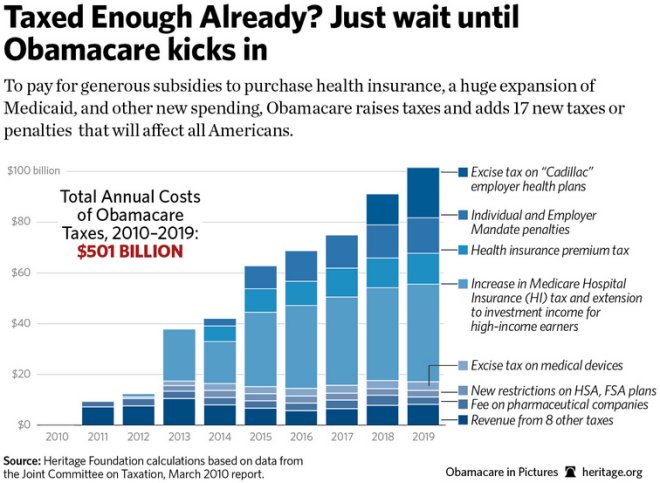The Impact of ObamaCare’s “Annual Fee” Tax
< < Go Back
ObamaCare’s “annual fee” tax will be passed on to consumers in the form of higher premiums, says Robert Book, a health and economics expert at the American Action Forum.
The Affordable Care Act imposes a tax on health insurance companies that is not set at a fixed percent per policy, but is instead a fixed amount on the entire health insurance industry. The fee will then be allocated to individual companies based upon an insurance company’s market share (as measured by total premiums). The text of the statute calls this tax an “annual fee,” but it is really a tax. The logic behind this tax is that insurance companies will make money from increased enrollment due to ObamaCare, and therefore should pay more to the federal government.
– For 2014, the fee is set at $8 billion. That figure rises to $11.3 billion in 2015 and 2016, reaching $14.3 billion in 2018. After that, the amount is based on a statutory formula.
– The tax applies to individually purchased insurance as well as Medicare Advantage and Medicaid managed care. Employer-sponsored self-insured health plans are exempt, though employer-sponsored insurance purchased from an insurance company is not.
– Notably, the tax cannot be deducted from an insurance company’s federal income taxes. As such, insurers will have to include this tax as part of their profits on which they will pay an additional tax. Book notes that for most for-profit insurers, this means an additional 35 percent income tax on that annual fee tax.
Insurance companies will simply transfer this tax to consumers. Individuals will see their premiums increase due to this tax by $60 to $160 per person in 2014. That number will rise to $100 to $300 by 2018 for the average individual. For family coverage, the increase will reach $476 in 2018.
Notably, these higher premiums will lead some consumers to forgo insurance, increasing the average tax paid by those who remain insured.
More From NCPA:




